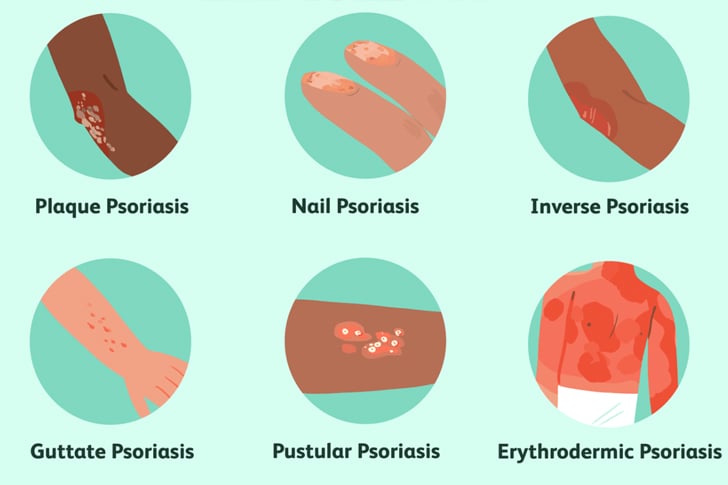Managing psoriasis requires understanding its roots in both immune system and genetics. Here, we provide tips and advice for managing your condition effectively.

Understanding Psoriasis
Psoriasis is a chronic skin condition characterized by red, scaly patches. It is a result of an overactive immune system that speeds up skin cell growth. Recognizing the triggers and underlying factors can significantly help in managing the condition.
The Role of the Immune System in Psoriasis
Immune System's Impact
Psoriasis is primarily an immune-mediated disease. Your body's T-cells mistakenly attack healthy skin cells, speeding up the production of new cells that accumulate in patches on the skin's surface.
Managing Immune Triggers:
Stress Management:
Stress can trigger immune responses that exacerbate psoriasis. Techniques like mindfulness, yoga, and deep-breathing exercises can help.Healthy Diet:
Foods rich in antioxidants, omega-3 fatty acids, and anti-inflammatory properties can strengthen your immune system. Consider including more fruits, vegetables, fish, nuts, and seeds in your diet.Medications:
Some treatments specifically target the immune mechanisms of psoriasis. Discuss options like biologics or other immune-modulating treatments with your healthcare provider.
Genetic Factors in Psoriasis
Genetic Predisposition
Genetics play a significant role in psoriasis. If you have a family history of the condition, you are more likely to develop it. Understanding your genetic background can help in anticipating and managing outbreaks.
Genetic Testing and Counseling:
Family History Check:
If you have relatives with psoriasis, informing your doctor can help tailor your treatment plan.Genetic Testing:
While not commonly required, genetic testing can offer insights for better personalized treatment plans.Counseling:
Genetic counseling can provide support and information, especially if you are concerned about passing psoriasis to your offspring.
Practical Tips for Managing Psoriasis
Skincare Routine:
Moisturize Regularly:
Keeping your skin hydrated helps to reduce itching and the appearance of scales.Gentle Cleansing:
Use mild, non-fragrant cleansers to avoid irritating your skin.Soothing Baths:
Lukewarm baths with Epsom salts or colloidal oatmeal can provide relief.Lifestyle Changes:
Quit Smoking:
Smoking can worsen psoriasis symptoms. Seeking help to quit can improve your skin and overall health.Moderate Alcohol Consumption:
Alcohol can trigger flare-ups in some individuals. Moderation is key, or consider abstaining if alcohol is a trigger for you.Regular Exercise:
Physical activity can reduce stress, boost your immune system, and improve your overall well-being.Medical Interventions
Topical Treatments:
Steroid Creams:
Often used to reduce inflammation and slow down the overproduction of skin cells.Vitamin D Analogues:
These help to slow skin cell growth.Coal Tar:
An older treatment that can reduce scaling, itching, and inflammation.
Systemic Treatments:
Oral Medications:
Drugs like methotrexate or cyclosporine can reduce psoriasis symptoms by targeting the immune system.Biologics:
These are advanced medications that specifically target parts of the immune system and have shown great efficacy in treating moderate to severe psoriasis.
Phototherapy:
UVB Light Therapy:
Exposing the skin to ultraviolet B light can slow down the growth of affected skin cells.PUVA:
This involves a combination of a chemical (psoralen) and exposure to ultraviolet A light to treat severe cases.
Emotional and Psychological Support
Mental Health
Living with psoriasis can be emotionally taxing. Seek psychological support if you feel overwhelmed. Support groups or a therapist specializing in chronic illness can be beneficial.
Coping Strategies:
Stay Informed:
Knowledge is power. Understanding your condition can help you manage it better.Build a Support Network:
Friends, family, and psoriasis support groups can provide comfort and practical advice.Self-Acceptance:
Embracing your condition and practicing self-compassion can improve your mental well-being.
Final Thoughts
Managing psoriasis is an ongoing process that involves understanding genetic predispositions and immune system interactions. By combining lifestyle changes, medical treatments, and psychological support, you can live a fulfilling life despite the challenges posed by psoriasis. Always consult with healthcare professionals to tailor your treatment plan to your specific needs.









